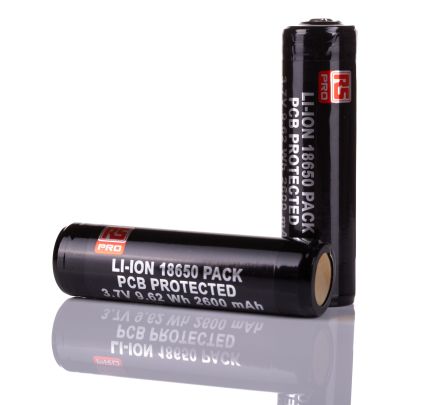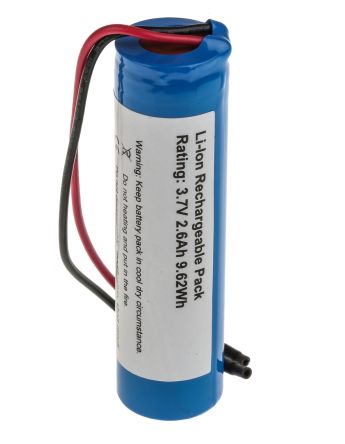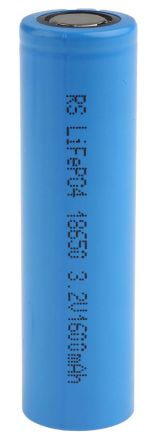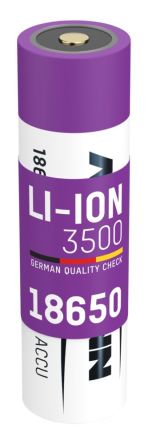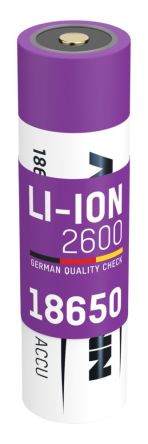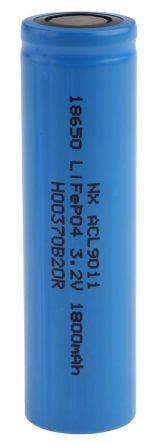- Automation & Control Gear
- Cables & Wires
- Enclosures & Server Racks
- Fuses & Circuit Breakers
- HVAC, Fans & Thermal Management
- Lighting
- Relays & Signal Conditioning
- Switches
- Batteries & Chargers
- Connectors
- Displays & Optoelectronics
- ESD Control, Cleanroom & PCB Prototyping
- Passive Components
- Power Supplies & Transformers
- Raspberry Pi, Arduino, ROCK, STEM Education & Development Tools
- Semiconductors
18650 Batteries
Speciality size rechargeable batteries are of non-standard dimensions and specifically tailored to fit devices and equipment that require a specific power source other than a standard 9 V, AA or AAA battery type. Our range batteries include leading brands such as Panasonic, Ansmann and RS PRO
What are speciality size rechargeable batteries used for?
Speciality size rechargeable batteries are used in electronic devices that require a small, compact source of power. For example, 1/2 AA batteries are used in smaller and specialist electronic devices such as pulse oximeters, while sub c batteries are frequently used in emergency lighting and power tools. Other applications include watches, remote controls and other small devices that require a compact long-lasting battery that can also be recharged regularly for recurring use.
Types of Special Size Rechargeable Batteries
Speciality size rechargeable batteries are available with a range of chemistries including the following.
Lithium-Ion (Li-Ion)
Lithium-ion batteries are one of the most popular types of rechargeable battery for portable electronics and have a high energy density with flammable electrolytes therefore require a protection circuit.
Lithium Iron Phosphate (LiFePO4)
Lithium phosphate batteries are a type of lithium ion battery with a lower energy density. Lithium iron phosphate batteries are more resistant to mechanical influences and do not suffer thermal damage in the form of overheating in the event of slight mechanical damage. These batteries are low cost, have low toxicity and have a good performance along with long term stability
Lithium Polymer (Li-Po)
Lithium Polymer batteries can swell when overloaded and therefore need to be recharged with special cables or chargers. For this, they are lightweight and last a very long time when used correctly.
NiMH - nickel-metal-hydride battery
This battery type has a higher energy density than the NiCd variant. The batteries are sensitive to thermal and mechanical influences. Mobile devices with constant consumption often use NiMH batteries.
